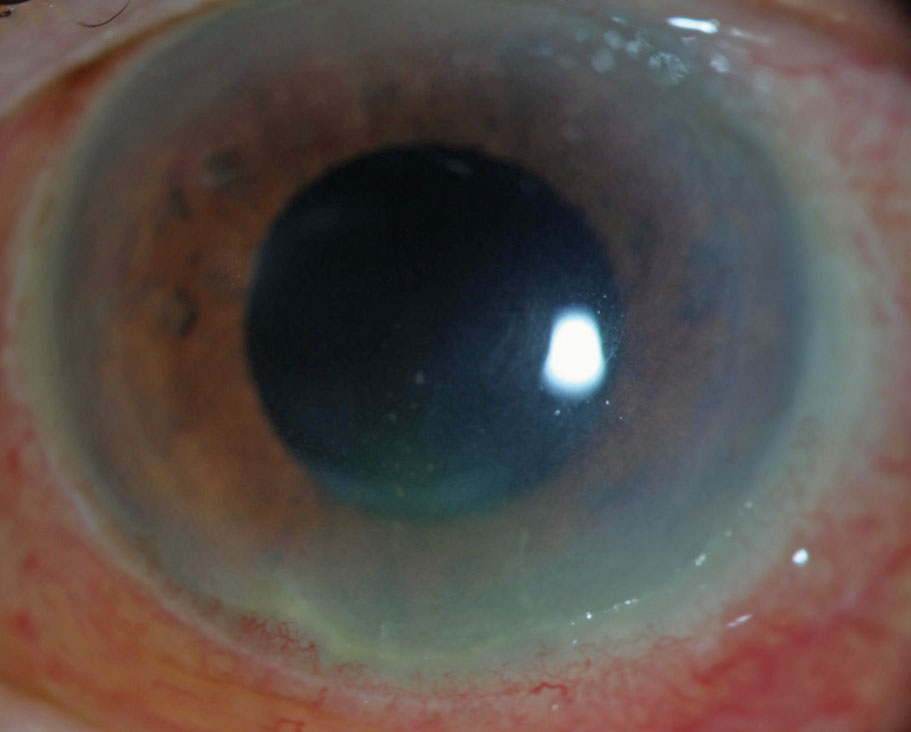 |
| When treated early with immunomodulatory therapy, children with anterior uveitis may be able to avoid secondary complications down the road. Photo: Aaron Bronner, OD. Click image to enlarge. |
Anterior uveitis in children is severe and can lead to visual complications such as cataract, glaucoma and band keratopathy. Immunomodulatory therapy is typically part of a stepladder approach to treat this condition, and in a recent study, researchers evaluated its efficacy.
A total of 134 patients (191 eyes) 18 years and younger treated for anterior uveitis using the stepladder approach during a 10-year period were reviewed. One-fourth responded to topical steroids alone. The remaining three-fourths required immunomodulatory therapy (one-fourth responded to methotrexate alone and the rest needed the addition of biologic agents). Thirty percent had to be switched to a different agent due to systemic side effects.
“Despite the difficulties in determining which immunomodulatory therapy worked best with the least amount of side effects, we were able to control the uveitis in 88% of patients,” the study authors explained. “Our study highlights the fact that there were two main issues in the management of pediatric uveitis using immunomodulatory therapy. First, there may be persistent uveitis which can be managed using the stepladder approach (first increasing the dose and frequency of the current agents or by adding a new immunomodulatory therapy agent). Second, there may be systemic side effects from immunomodulatory therapy. These side effects were not life-threatening but required switching to a different immunomodulatory therapy agent.”
The reduced incidence of complications may be due to regular screening regimens in patients leading to early diagnosis, early use of immunomodulatory therapy and the addition or switch to a different biologic agent when inflammation was persistent. The most common complications were band keratopathy (21%) and posterior synechiae (20%). The incidence of cataract formation (19%) was low compared with other studies, which may be due to steroid-sparing treatment. The need for surgical intervention was also on the lower side (16%).
Immunomodulatory therapy is safe and effective in managing pediatric anterior uveitis, helps improve visual outcomes with fewer complications and causes less need for surgical interventions. “Early introduction of immunomodulatory therapy in a timely manner using a stepladder approach is the key to achieving steroid-free remission and helps reduce long-term complications of steroids and uncontrolled uveitis,” the investigators concluded.
Huynh E, Elhusseiny AM, Nihalani BR. Pediatric anterior uveitis management in the USA: a single-centre, 10-year retrospective chart review exploring the efficacy and safety of systemic immunomodulatory therapy. Eye. May 23, 2022. [Epub ahead of print]. |

